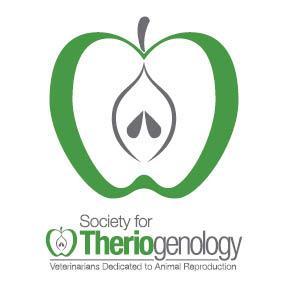Get access to all handy features included in the IVIS website
- Get unlimited access to books, proceedings and journals.
- Get access to a global catalogue of meetings, on-site and online courses, webinars and educational videos.
- Bookmark your favorite articles in My Library for future reading.
- Save future meetings and courses in My Calendar and My e-Learning.
- Ask authors questions and read what others have to say.
Effect of endocrinopathies on fertility in the mare
Part 2: Pituitary pars intermedia dysfunction
Maria Cadario, Louis Archbald
Get access to all handy features included in the IVIS website
- Get unlimited access to books, proceedings and journals.
- Get access to a global catalogue of meetings, on-site and online courses, webinars and educational videos.
- Bookmark your favorite articles in My Library for future reading.
- Save future meetings and courses in My Calendar and My e-Learning.
- Ask authors questions and read what others have to say.
Read
Due to advances in veterinary medicine, equine geriatric population has markedly increased. Without losing perspective of the reproductive problems associated with ageing, it is very important to consider the endocrinologic/metabolic problems (e.g., pituitary pars intermedia dysfunction [PPID; i.e., equine Cushing’s disease]) that may also directly impact fertility in this group. PPID is neurological in origin and negatively affects mare’s fertility. Frequent clinical signs are: older mare with abnormal, ectopic fat deposits, hirsutism, abnormal estrous cycles, anovulatory follicles, frequent or persistent endometritis, and laminitis. A large number of mares with PPID may develop insulin dysregulation (ID) and insulin resistance (IR) due to the persistent hyperglycemia resulting in ectopic fat deposits or the genetic link that PPID shares with equine metabolic syndrome. Diagnosis of PPID requires a detailed history and physical evaluation combined with appropriate laboratory tests. Treatment for PPID comprises good management and treatment with either dopamine agonists (pergolide, cabergoline) or cyproheptadine, or a combination. A few studies linked or associated subfertility with this condition, and clearly, there is a need for further investigation. ...
Age, insulin dysregulation, mare, fertility, hirsutism
Get access to all handy features included in the IVIS website
- Get unlimited access to books, proceedings and journals.
- Get access to a global catalogue of meetings, on-site and online courses, webinars and educational videos.
- Bookmark your favorite articles in My Library for future reading.
- Save future meetings and courses in My Calendar and My e-Learning.
- Ask authors questions and read what others have to say.



Comments (0)
Ask the author
0 comments